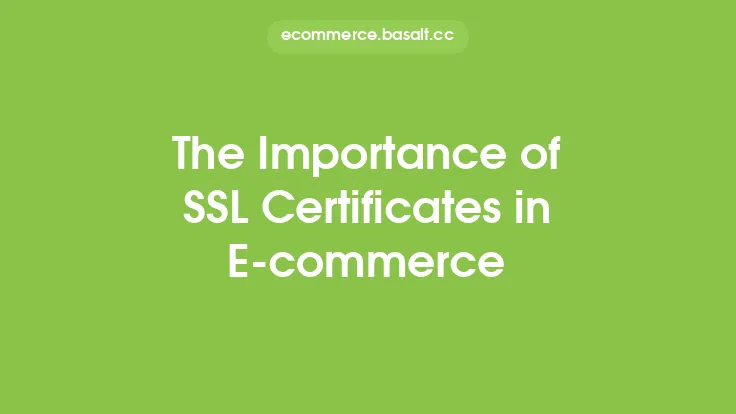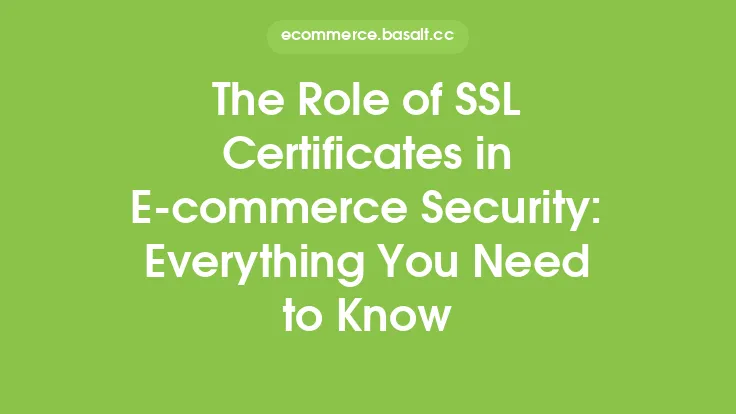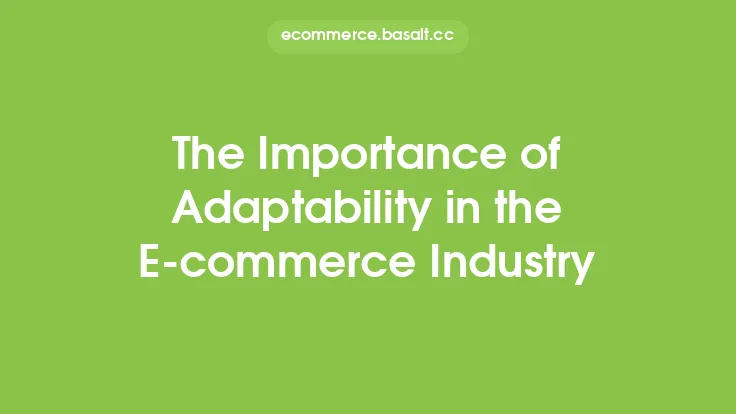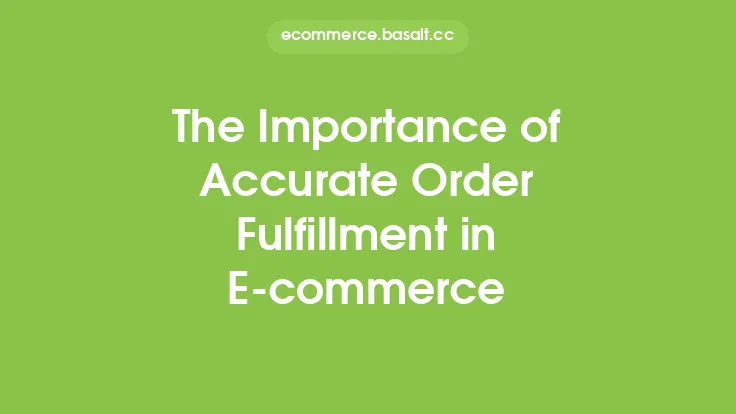In today's digital age, e-commerce has become an integral part of the way we shop and conduct business online. With millions of transactions taking place every day, it's essential to ensure that these transactions are secure and trustworthy. One crucial aspect of e-commerce security is the use of SSL certificates. SSL (Secure Sockets Layer) certificates are a type of digital certificate that verifies the identity of a website and encrypts data transmitted between the website and its users. In this article, we'll explore the importance of SSL certificates in e-commerce and why they're a must-have for any online business.
What is an SSL Certificate?
An SSL certificate is a digital certificate that verifies the identity of a website and encrypts data transmitted between the website and its users. It's issued by a trusted third-party organization called a Certificate Authority (CA) and contains the website's public key and identity information. When a user visits a website with an SSL certificate, their browser checks the certificate to ensure it's valid and trusted. If the certificate is valid, the browser will display a padlock icon in the address bar, indicating that the website is secure.
How SSL Certificates Work
SSL certificates work by using a combination of public key infrastructure (PKI) and encryption to secure data transmitted between the website and its users. Here's a step-by-step explanation of how it works:
- A website owner purchases an SSL certificate from a CA.
- The CA verifies the website's identity and issues the SSL certificate.
- The website owner installs the SSL certificate on their web server.
- When a user visits the website, their browser checks the SSL certificate to ensure it's valid and trusted.
- If the certificate is valid, the browser will display a padlock icon in the address bar, indicating that the website is secure.
- The browser and web server establish a secure connection using the SSL certificate's public key.
- Data transmitted between the website and its users is encrypted using the SSL certificate's private key.
Benefits of SSL Certificates in E-commerce
SSL certificates offer numerous benefits for e-commerce websites, including:
- Encryption: SSL certificates encrypt data transmitted between the website and its users, protecting sensitive information such as credit card numbers and passwords.
- Authentication: SSL certificates verify the identity of a website, ensuring that users are communicating with the intended website and not an imposter.
- Trust: SSL certificates display a padlock icon in the address bar, indicating that the website is secure and trustworthy.
- SEO benefits: Google favors websites with SSL certificates in their search results, giving them a higher ranking.
- Compliance: SSL certificates are required for compliance with industry standards such as PCI-DSS (Payment Card Industry Data Security Standard) and GDPR (General Data Protection Regulation).
Types of SSL Certificates
There are several types of SSL certificates available, including:
- Domain Validation (DV) certificates: These certificates verify the domain name of the website and are the most basic type of SSL certificate.
- Organization Validation (OV) certificates: These certificates verify the organization's identity and are more comprehensive than DV certificates.
- Extended Validation (EV) certificates: These certificates provide the highest level of verification and display a green address bar in the browser.
- Wildcard certificates: These certificates secure multiple subdomains of a single domain.
- Multi-domain certificates: These certificates secure multiple domains with a single certificate.
Best Practices for Implementing SSL Certificates
To get the most out of SSL certificates, follow these best practices:
- Choose a reputable CA: Select a trusted CA that is recognized by most browsers.
- Install the certificate correctly: Ensure the SSL certificate is installed correctly on your web server.
- Configure the certificate: Configure the certificate to secure all pages of your website, not just the checkout page.
- Monitor the certificate: Regularly monitor the certificate's expiration date and renew it before it expires.
- Test the certificate: Test the certificate to ensure it's working correctly and displaying the padlock icon in the address bar.
Conclusion
In conclusion, SSL certificates are a crucial aspect of e-commerce security and trust. They verify the identity of a website, encrypt data transmitted between the website and its users, and display a padlock icon in the address bar, indicating that the website is secure and trustworthy. By understanding the importance of SSL certificates and implementing them correctly, e-commerce websites can protect their customers' sensitive information, build trust, and increase conversions. As the e-commerce landscape continues to evolve, the importance of SSL certificates will only continue to grow, making them a must-have for any online business.





